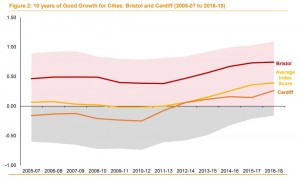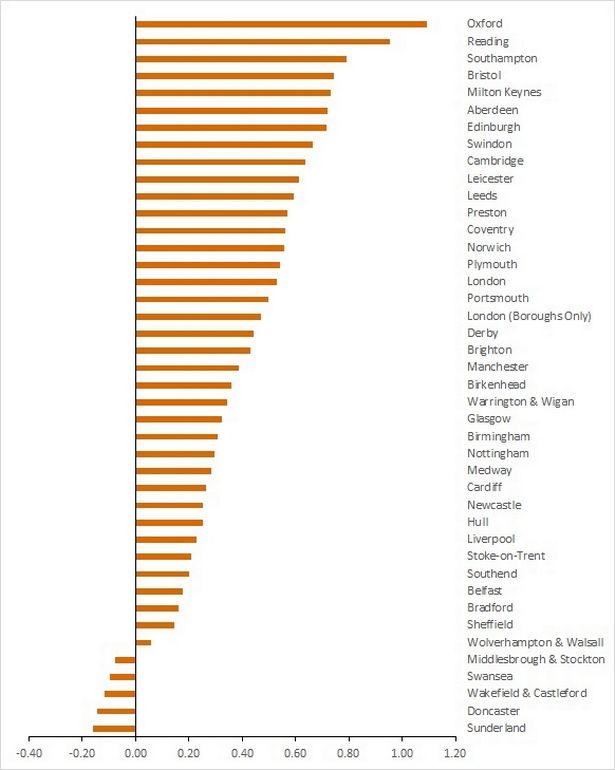Bristol has moved up in a respected league table of the UK’s best cites for economic success – with a welcome rise in the skills of its young people a deciding factor.
However, the city – which is placed fourth in the latest Good Growth for Cities Index from accountancy group PwC – experienced a decline in its affordability due to its spiralling property prices. 
Bristol climbed one place from fifth to fourth in the Top 10 – with Oxford, Reading and Southampton taking the first three places respectively for the fourth year running. London as a whole is not included, although some of its boroughs are.
The report measures 42 UK cities against 10 indicators chosen by the public and business to demonstrate economic success and wellbeing.
Employment, health, income and skills are the most important factors, according to the report, while housing affordability, commuting times, environmental factors and income inequality are also included in the index, as well as business start-ups.
Bristol’s biggest increase since the 2015-17 index was in skills of 16-24-year-olds, while the rise in the cost of housing relative to earnings was its biggest negative score.
For the environment variable, only Bristol in the West region performed above average, although all cities saw absolute increases in their index values.
Bristol had above average movements in transport, health and skills of its 25 year olds and above relative to the 2018 index. However, it also had below average movements for jobs, although PwC said this was partly driven by the relative improvements of other cities, rather than a decline in Bristol. 
PwC West and Wales regional leader John-Paul Barker, pictured, said: “Our Good Growth for Cities index shows that there’s more to life, work and general wellbeing than just measuring GDP.
“I’m delighted to see Bristol continuing to perform strongly in our latest index, it’s a vibrant city with so much going for it.
“The progress made by cities across the South West and Wales is to be welcomed, but also presents some challenges. It is critical that the local authorities and their partners in this area continue to focus on their approach to managing rapid growth, ensuring that its benefits are distributed fairly across all sections of society.”
PwC partner and local government leader Jonathan House added: “In an era of political, technological and environmental disruption, cities and regions that want to get ahead, need to do things differently. Even with the uncertainty of Brexit, over the last year, local leaders have had significant success in delivering good growth in their cities and regions. Our research shows the need to take a comprehensive approach to growth, focusing on improving productivity to compete on a global stage, but also on ensuring fairness and inclusive growth so that people and places don’t feel left behind.
“Local leaders need to take a broad view on what economic success means, focusing on the outcomes they want to achieve in terms of inclusive growth, community resilience and improved experience, and crucially, having a plan to translate those ambitions into reality.
“Skills amongst the working age population, alongside the number of new businesses created, have seen the largest improvements; this is a result of leaders focusing on building new opportunities and investing in the talent of their city and region. 
“The UK’s cities are known globally for their skills, innovation and entrepreneurial spirit. Our most successful cities don’t compete against other UK cities, they compete against cities across Europe, the Middle East and the US.
“As the UK’s position on the world stage shifts, cities and regions will need to reposition themselves too, and consider how they can stand out and compete globally, improve productivity and support innovation, while also creating places that are fair and inclusive. ”






























